Musical prodigy tells how he went from church to the Backstreet Boys to Musical Director for Jennifer Lopez
Exclusive interview with FBPO’s Jon Liebman
January 19, 2015
Born and raised in Los Angeles, Bryant Siono is a bassist, producer, musical director and songwriter. Throughout his brilliant career, Bryant has collaborated with a wide variety of musical artists, including Frank McComb, N’dambi, Jonathan Butler, Prince, Katharine McPhee, Chris Brown, Gerald Albright, Dave Koz and many others. Siono performed with the Backstreet Boys for four years. Since 2011, Bryant has served as musical director for music and media icon Jennifer Lopez.
FBPO: How would you describe your musical upbringing?
BS: I started playing music at a very young age, around 8 years old. I went to a piano class at my church. I didn’t want to go, but my parents forced me to do it. I was like this really crazy, high-energy kid. I went to the class and I ended up falling in love with it. I kept going and I grew up playing piano my whole life.
Soon after, I started playing piano in the church band and I learned how to play all these instruments. Once you learn to play piano, since it’s kind of all laid out for you, right in front of you, it’s pretty easy to pick up other instruments. I learned how to play the guitar and the bass and drums and stuff like that.
FBPO: How did you become a bass player?
BS: We didn’t have a bass player at the church, but there were two keyboard players, so I jumped on the bass. I really didn’t want to because I wanted to play keyboards so bad. I started liking the bass, but still felt like it wasn’t my instrument.
Then I saw a video of Abraham Laboriel, Sr., and I was like, “Wow! Who the heck is this guy and how does he do that on the bass?!” I couldn’t believe that he was chording and slapping and doing all these melodic things on the bass. I had no idea that you could play the bass like that. It blew me away and I said I want to be able to play bass like that. I’m going to give it a shot.
I kept studying and learned all the tricks and ended up just sticking with it. Then I realized how important the bass is. I guess when you’re younger, you really don’t realize how important the bass is, but as you get older and you get more mature and you really start getting into the instrument, you really start noticing like, “Wow, I’m really carrying the whole band here, like me and the drummer really have to carry the whole entire band. It revolves around us.”
FBPO: Other than Abe Laboriel, who were some of your other early bass influences, once you discovered the instrument?
BS: Probably after Abe Laboriel, my biggest influence was a bass player named Marco Mendoza.
FBPO: Great guy!
BS: When I was 15 years old, 16 years old, I used to see him at the La Ve Lee club in Los Angeles, Studio City.
FBPO: I remember that place!
BS: I used to go there to see Marco play with Joey Heredia and Renato Neto. They used to blow my mind! All three of them were a huge influence on my life, musically. I’ve seen that show a million times. It was the same show, but it was never the same. I miss those days. I’m born and raised in L.A. and I caught the tail end of that scene, when you could walk into the La Ve Lee and see Joey Heredia and Marco Mendoza, Dave Weckl. Or walk into Catalina Bar & Grill when it used to be on Cahuenga and go see Chick Corea. It’s not the same any more.
FBPO: Were you figuring out how to play bass on your own?
BS: I was. I was figuring it all out on my own. I never really took lessons. I just grew up playing in the church, gospel music. I think that’s a school in itself, learning gospel music, real gospel music. There are so many different kinds of music that go into it. There’s R&B, there’s funk, there’s even fusion at times and jazz. If you can play that stuff, you can play anything.
I just grew up kind of playing by ear and the gospel thing really, really helped me. From there, I taught myself how to read and started playing other gigs outside of church, like jazz gigs and regular R&B gigs, and all that kind of molded me into what I am now.
FBPO: You seem to have been pretty well versed in several styles of music, almost from the beginning.
BS: I always tell people to learn as much music as you can. You don’t have to be the best Brazilian player, the best Latin player, the best this and that. We’re always going to have our one thing. For me, it’s funk music. I love funk. That’s my thing. But don’t put everything (else) on the back burner. Learn it, understand it, get to know it. Just be fluent enough. That way, if you ever get a call to do that kind of gig, you know it and you can do it and you won’t struggle with it. That’s something I learned when I was really young.
I had an older guy I used to hang out with. He was like, “This kid’s really good” and we would always jam out. He would always tell me, “Hey, man, make sure you learn all the styles of music. It’s very important. I know you’re really into this, but make sure you learn everything because one day it’s going to come in very handy and one day it will make you a lot more money than if you were just an R&B player or just a funk player and people can count on you for all the gigs.”
FBPO: And was he right?
BS: He was absolutely right! [Laughs] Absolutely right, man. It’s been great! I mean I love doing the Latin gigs and I love doing flamenco gigs, Brazilian gigs. It’s great ‘cause it keeps my mind kind of going, you know what I mean? Instead of just the same thing over and over and over, you know? Especially nowadays, where I play for and I’m the musical director for a lot of big pop artists and it’s just a different world to play in there. In that scene, I have to think about the whole entire show and all that stuff. That’s why we’re pros and why they pick us for those kinds of gigs. It’s not like we’re the best musicians in the world. It’s because we’re professionals and sometimes, as professionals, you have to know what not to play.
FBPO: You were with the Backstreet Boys for quite a while. Is that a cool thing to have on your resumé?
BS: It was great! It was a great experience. They’re one of the biggest pop bands, boy bands, ever. What was cool about that gig is that they went through different phases. They were like the super teenybopper pop band, which was cool. Then they went into this rock vibe and we would do big power ballads and rock tunes. Then they had a bunch of R&B and hip-hop stuff.
When I came into the scene, the Backstreet Boys had taken a break and then they came back. They reunited and we did this tour called “The Unbreakable Tour.” They wanted to play all this music that they’d done over their career, which is tons of different styles. Playing it was great because it wasn’t like, “Hey, we’re just playing a bunch of pop tunes” or, “Hey, we’re just playing a bunch of rock tunes.” We did rock, pop, R&B, hip-hop, everything. It was a very versatile gig and it was fun. You never got bored of playing that gig.
FBPO: How about the JLo gig? How did that come about?
BS: I was playing with Backstreet and they had gotten a new creative director. They brought on a new drummer and a new keyboard player, a new guitar player. I stayed in the band because the guys wanted me. I was playing bass and writing all the ProTools, all the backing tracks.
At first, I didn’t really feel like I clicked with this person very well. I didn’t like the changes that were going on, but I always say, in this business you gotta have a great attitude. At the end of the day, that goes a lot farther than being a monster player. So I kept my mouth shut and I just did my job. Nobody knew that show better than me. Sometimes, I needed to step in and be like, “Hey, right here, we used to do this. I see where it’s trying to go, but maybe we can do this and then incorporate some of this stuff because I know that the boys like this sound.”
We did a promo run and we did all the TV shows, Leno, Ellen, the Tonight Show, Regis & Kelly. We did that whole run and it was great. We got through it and that was it. Then maybe about, I would say like five years later, that same person that I didn’t really hit it off with, called me to be the musical director for Jennifer Lopez!
FBPO: Were you surprised?
BS: I was! I was very surprised. As soon as I got the call, I knew it was because I wasn’t a jerk. I could have easily been a jerk and this would have never happened. People want to work with great people that do great jobs and have a great attitude. That all pays off in the end. In my situation, it took five years, but it came back around. I had actually done a gig with JLo prior to that, so she knew who I was and that helped.
FBPO: Tell me about JLo. What is she like to work with?
BS: She’s great! It’s a lot of fun, especially because she is the type of person that, when we get creative, she wants to get creative together. There are definitely those moments where it’s like, “Okay, take care of this.” She depends on me to make the arrangements. I know what she likes. But there are also those moments when she comes in and she’s like, “All right, Bryant, I want to do this, I want to do that. Maybe we can do this arrangement here. Let’s figure it out. Like, what can we do? Let’s try different things.”
She’s very active in being creative with us, you know. She wants the best. A lot people dance so much, they don’t want to sing live. They just use backing tracks and stuff like that. But I give it up to Jen because she likes to sing and me, as a musician, I respect that. She’s great to work with. She’s a great artist, great person and she’s good at what she does. She’s a great entertainer and we always come up with these amazing shows.
FBPO: Bryant, tell me about your equipment.
BS: I use Aguilar amplification. I love Aguilar. I think they’re the greatest! On tour, I use two 2×12 cabinets with a horn and the 751 amp. Around town, I use two 1×12 cabinets with the Tone Hammer 500. It’s a great-sounding rig.
For my basses, I play a La Bella, the Olinto P-bass, which is probably, I would say, the closest thing you ever get to any real vintage-sounding P-bass that feels and sounds right. I also play Wilkins jazz basses, 5-strings.
FBPO: You use La Bella strings, right?
BS: I only use La Bella strings. I love them. I think they’re incredible.
FBPO: What do you love about La Bella strings?
BS: I’ve been playing La Bella “Super Steps” for years. It’s a very delicate string. It has this open sound. It’s taper core, but it’s a different taper core. It’s like it goes all the way down to the wire, where it sits on your bridge. That was the first string I played from them, but I loved it! I loved the sound. The steel on that string sounds incredible.
On this last tour, I started using their “RX” strings, which are not tapered, so it was different for me. It’s a different feel, but I liked it because it has a bounce. These “RX” strings respond a different way when you slap. It’s like you hit the string and it bounces right back at you. It has, I would say, less tension. There’s like a little bit less tension, so it doesn’t feel as tight. I’ve always been a steel player, but on the “RX,” I actually love playing the nickel. It’s between those two strings, the “Super Steps” and the “RX” nickel. If you’re playing the P-bass, they’re flatwounds and they’re just, hands down, the best flatwound you’ve ever played.
FBPO: What else is keeping you busy?
BS: A lot! I just started with a band called Rixton. They’re from the U.K. and they’re getting really, really big. They have a couple singles out on the radio and they’re about to do their debut tour in the U.S., opening up for Ariana Grande. They called me to be their musical director.
I’ve been doing more than just playing. I’ve been directing people’s shows. I directed for a huge Latin artist named Cristian Castro. I produced a single on his last album and that led to him wanting me to direct his band and put his whole show together.
FBPO: How about the future? You’re still pretty young and obviously have a lot of energy. What else would you like to do that you haven’t already accomplished?
BS: I’m working on an album. It’s something I’ve been working on for a long time, but I get so busy working for everybody else, I never really have time to work on it. And then there are certain players that I want on my record and when I’m home, they’re not home and stuff like that. But I really want to focus on that this year. As soon as I get some time off from Rixton, I want to finish my record.
FBPO: What can you tell us about it?
BS: It’s not going to be like this bass soloist album. It’s just going to be a great record with great songs and great music, featuring singers. Not that there won’t be some bass stuff here and there, solos and stuff, but sometimes I don’t even want to hear a bass solo any more! I want to hear just great music.
FBPO: All original stuff?
BS: All original stuff. So I’m working on that and once that’s done, it looks like, potentially JLo’s going to be signing a residency in Las Vegas. If that happens, it will also give me time off the road. Vegas is close to L.A., so I can come back and forth and work on other stuff.
A lot of people are coming to me to direct their shows, where I don’t have to actually be in the band. I can put a band together, send them out, make sure everything’s going well and come back home and play the music that I want to play. That’s what I’m trying to achieve nowadays.
FBPO: You’re a bass player, musical director, producer, songwriter, engineer. What would you be if you weren’t any of those things? In other words, something outside of music.
BS: I would be a chef. I love to cook! I’m really into food and trying different foods from different cultures. Since I’ve been lucky enough to travel the world, I’ve been able to taste all these foods from all over the world and I’ve fallen in love with food. I tell my wife one day when everything settles down and all the madness ends and I have time, I’m going to take a year off and I’m going to go to culinary school, just for the fun of it. Whether I become a chef or not, I’m gonna go just to go.
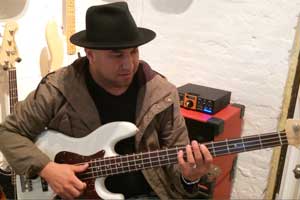

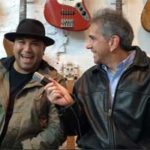
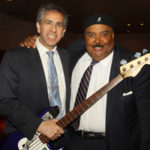
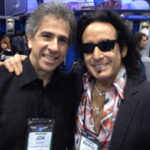
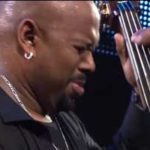
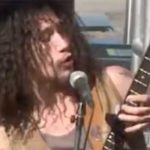

I have known Bryant for so many years and got to see him involved into the musician he is today!